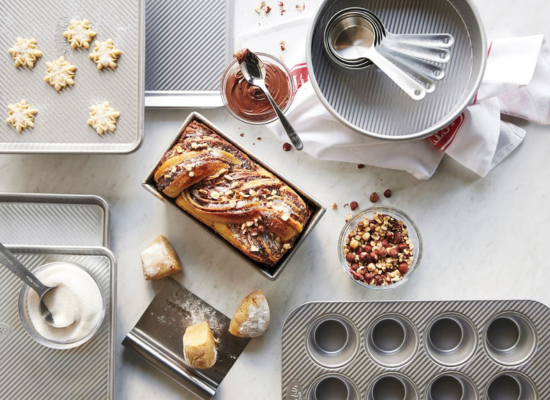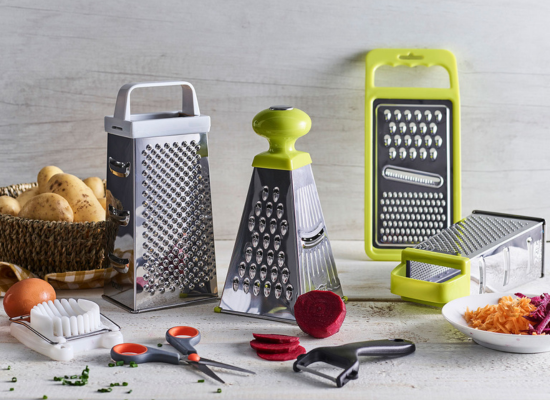
Your cookies will become dry and crumbly if you’ve used too much flour and your batter has turned out too dry. If the recipe calls for butter and you didn’t use it correctly, that could change the chemistry of the cookie and make it crumble. Lastly, It’ll be more crumbly and crisper if you over-bake it.
Dry and crumbly cookies can be really frustrating, especially when you are expecting a batch of delicious cookies. Go through the following article to know how to prevent your cookies from getting crispy and brittle.
Reasons Why Cookies Become Dry and Crumbly
There are a few reasons that can cause your cookies to become dry and crumbly. One reason is using butter that is too soft.
Some reasons that make your cookies dryer are overusing flour, less amount of fat and butter, not mixing the sugar and butter properly, over kneading, over mixing the dough, and finally over baking the cookies.
The Incorrect Use of Flour
One of the main reasons cookies become dry and crumbly is due to the incorrect use of flour. When measuring your flour, be sure to use the “spoon and level” method. This means that you should spoon the flour into your measuring cup, and then level it off with a knife.
Do not scoop the flour directly from the container, as this will lead to packing and compressing the flour, resulting in too much being used. Too much flour in the dough will make your cookies dry and crumbly.
You should also use the correct type of flour. All-purpose flour is the most common type of flour used in baking and will work for most cookie recipes.
However, if a recipe calls for another type of flour such as bread flour or cake flour, be sure to use that specific type of flour. Using the wrong type of flour can also lead to dry and crumbly cookies.
Another common mistake is using old flour. Flour has a shelf life of about six months to one year. After that time, it starts to lose its leavening power, which means it will not be able to help your cookies rise as much. This can also lead to dry and crumbly cookies.
Not Using the Butter or Fat Correctly
Butter and fat are key ingredients in cookies. Without it, the cookies will not be moist nor would they have that melt-in-your-mouth quality. This is because butter has water in it which prevents the formation of large crystals in the dough.
The fat also coats the flour particles, giving the cookie a tender texture. If you use too little butter, the cookies will be dry and crumbly.
Also, if the butter is softer and colder than what the recipe calls for, it will cause the cookies to spread too much and become dry. When you use butter that is too soft, it doesn’t cream together with the sugar as well as it should. Room temperature butter is key in cookie making.
Improper Measurements of Sugar
Sugar is important for sweetening the cookies and adding a golden brown color to the cookies. If the measurement for sugar is not balanced, it can result in dry and crumbly cookies. Too much sugar will make the cookies dry, while too little sugar will make the cookies dense.
You should take an adequate amount of time to cream the butter and sugar together. This step is important for making the cookies light and fluffy. If you don’t cream the butter and sugar together for long enough will make your cookies dry.
Do not use too much butter or margarine when creaming the butter and sugar together. This will add excessive moisture to the dough, which will cause the cookies to spread too much and become dry.
Over Kneading the Dough
One of the most common mistakes people make is overworking the dough. When you overwork the dough, gluten development will occur. Gluten is a protein found in wheat flour and too much gluten will make your cookies dry and crumbly.
Knead your dough only until it comes together. Once the flour is fully absorbed, stop kneading. Also, be careful not to overmix the dough when you add the dry ingredients to the wet ingredients. Overmixing will also result in cookies that will not be soft and moist.
Over Greasing the Cookie Sheet
Adding too much grease to the cookie sheet is one of the reasons that make cookies dry and crumbly. When making drop cookies, use a light hand when greasing the cookie sheet or line it with parchment paper.
Over greasing the sheet also causes the cookies to spread too much and become thin and dry.
Over Baking the Cookies
Baking is the most important step in making cookies. Overbaking may not give you the desired results.
Every oven is different, so it’s important to know yours well. The recipe will have general time guidelines, but be sure to check on your cookies a minute or two before the suggested time. You want the cookies to be set around the edges, but still soft in the center.
The correct temperature to make cookies is also crucial. If your oven is too hot, the cookies will dry out and become crumbly. You can check the accuracy of your oven by using an oven thermometer.
Place it in the center of your oven and preheat it to 350 degrees Fahrenheit. After 30 minutes, check to see if the thermometer registers 350 degrees. If it’s lower, adjust your oven accordingly.
LEARN MORE: Can You Cook Garlic Bread in the Microwave?
Tips to Make Cookies That Will Not Be Dry and Crumbly
There are a few things you can do to avoid dry and crumbly cookies. Below are some tips:
- Use butter that is at room temperature, not melted, and cream the butter and sugar together until light and fluffy. Room temperature butter will help your cookies to spread evenly while baking, resulting in a thinner cookie.
- Add an extra egg yolk to the dough. The egg yolk adds fat and moisture to the dough, helping to keep your cookies soft and chewy.
- Don’t overbake your cookies. Bake them until they are just set and the edges are lightly golden brown. Over baking will make your cookies dry and crumbly.
- Add a bit of cornstarch to the dough. Cornstarch helps to absorb some of the moisture in the dough, resulting in a softer cookie.
- Store your cookies in an airtight container. This will help to keep them from drying out and becoming crumbly.
- According to nigella.com, another thing to keep in mind is that the texture of the cookie will be different if you use all brown sugar or all white sugar. So, it is recommended to use a combination of both.
- Switching the baking soda (baking powder) for baking powder will also change the texture of the cookie, and it is not suggested, stated by nigella.com.
How to Fix Dry and Crumbly Cookies
Dry and crumbly cookies are a common problem that many home bakers face. If you find yourself with dry and crumbly cookies, there is a way to fix them!
The most appropriate way to fix the dry cookies is by using a simple hack. By adding a little bit of moisture to the dry cookies, they will become soft and chewy again.
This can be done by either placing a damp paper towel on top of the dry cookies or by microwaving them for a few seconds.
You can also use the dry cookies if you don’t want to waste them. One option is to crumble them up and use them as a topping for ice cream or other desserts. Another option is to use them in place of bread crumbs in recipes.
LEARN MORE: How Long to Cook Chicken Nuggets in Microwave?
Conclusion
Now that you know all about dry and crumbly cookies, as well as how to avoid them, it’s time to get baking! Baking cookies is a delicious way to show your friends and family some love.
Be sure to check out the recipe below for delicious cookies that will surely impress. And with these tips in mind, you’ll be able to enjoy your baking experience even more.



